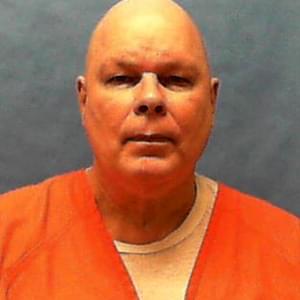The ruling from U.S. District Court Judge Jeremy Fogel (pictured) on Friday, December 15, appears intended to spur California public officials to modify the current system of putting inmates to death. Judge Fogel’s order was not a final decision, but rather a “Memorandum of Intended Decision: Request for Response from Defendants.” The defendants in this case are the corrections officials of the state, including, ultimately, the governor, Arnold Schwarzenegger.
Judge Fogel makes clear that “this case is not about whether the death penalty makes sense morally or as a matter of policy.” It is only about whether California’s lethal-injection protocol “as actually administered in practice” violates the Eighth Amendment. After an exhaustive review, including a visit to the execution chamber in San Quentin, Judge Fogel concluded that the state’s “implementation of lethal injection is broken, but it can be fixed.”
The judge makes clear that he has made every effort to allow the state to continue with executions, so long as the proper protections were in place. In fact, the execution of Michael Morales was cleared to proceed when California announced it had retained two doctors to supervise the execution. But those doctors then backed out when their duties in the execution were more fully described.
According to the Memorandum, the government’s response to the problems identified in the execution process have been inadequate. Instead, the state only “tweaked” some of the chemical aspects of the protocol and then contended that no more changes were required. This position was held despite the fact that the state’s own medical expert, Dr. Robert Singler, testified that it would be “terrifying” and “unconscionable” to be awake and injected with the contemplated dosage of the drugs prescribed in the protocol.
The drugs used in lethal injection would be allowed if the defendant was rendered unconscious. However, the judge concluded that the state’s protocol “does not function as intended.” He listed a number of deficiencies including unreliable screening of execution team members, a lack of meaningful training and supervision of team members, and improper preparation of the anesthetic.
Judge Fogel concluded that the “evidence is more than adequate to establish a constitutional violation” and that the state’s lack of professionalism was “deeply disturbing.” The responsibility for the flaws “falls squarely upon the Defendants.” He noted that remedying this situation will take time, especially since the state had “still [] not fulfilled their discovery obligations.” The judge noted that the state’s unwillingness earlier to “see the situation for what it is and to be proactive is self-defeating.” Nevertheless, he concluded that this case “presents an opportunity for executive leadership.”
(Morales v. Tilton, No. C 06 219 & 926 JF RS, U.S. Dist. Ct. for N. Dist. of Calif., Dec. 15, 2006) (Memorandum) (DPIC analysis, Dec. 18, 2006).
Gov. Schwarzenegger released a statement on December 18 saying that “My administration will take immediate action to resolve court concerns which have cast legal doubt on California’s procedure for carrying out the death penalty.”
(L.A. Times, Dec. 18, 2006). See Lethal Injection.
Executions Overview
Aug 28, 2023
Alabama Attorney General Seeks Execution with Unprecedented, Untested Method Using Nitrogen Hypoxia
Executions Overview
Aug 01, 2023

8th Circuit Lift Stay of Execution for Death-Sentenced Missouri Prisoner with Schizophrenia
Executions Overview
Jul 24, 2023


